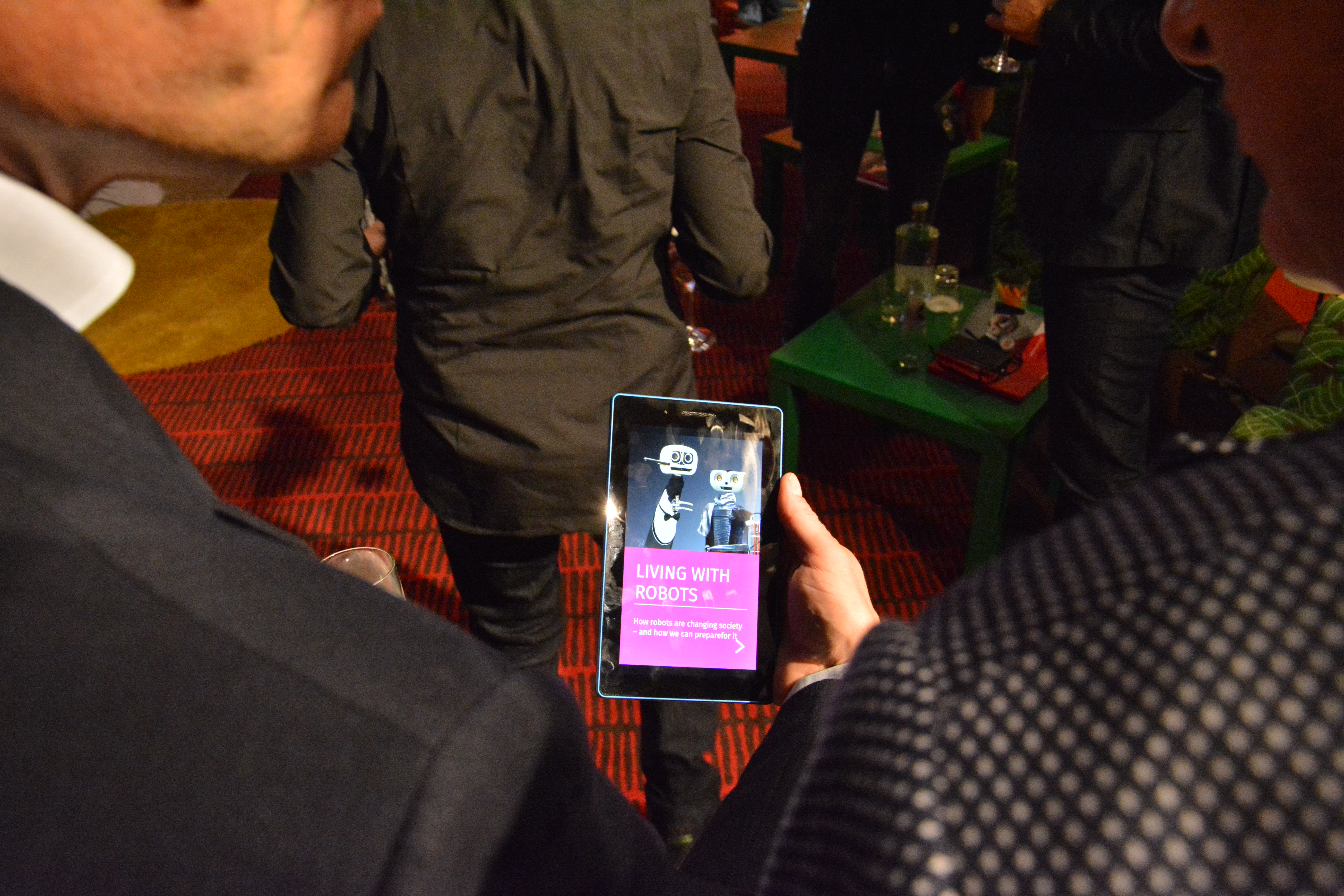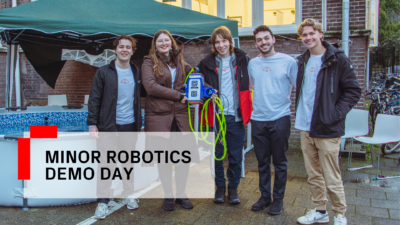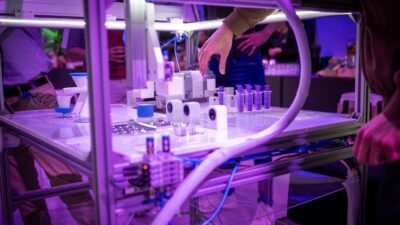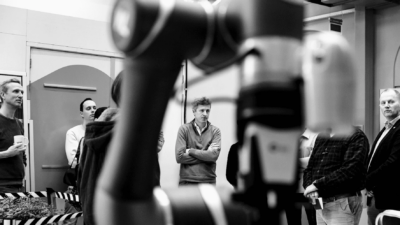Will a robot chef ever earn stars for its restaurant? Will the elderly remain independent longer thanks to robots? During the International Masterclass Robotics 2016 we launched an e-book, Living with Robots, that delves deeper into such questions.
In a novel e-book format, journalists Bennie Mols and Bram Vermeer, along with radio host Karin van den Boogaert, take these questions as a starting point for analyses and discussions. In interviews, background stories, podcast debates and videos, they present a nuanced picture of the promise and consequences of the rise of robots in society.

New questions
The current public debate about robots has become very much polarised. On the one hand, there are those who predict that we will all lose our jobs. On the other hand, there is an endless promise. However, there is little in between. What our future with robots really will look like, remains underexposed. How will humans and robots work side by side? The e-book contains many examples of robots that are no longer confined to safe places behind fences somewhere in a factory. Robots are starting to move about freely, interacting with people, and they are becoming smart enough to respond to unexpected situations. That raises interesting and important new questions. Responsibilities are shifting. Think of a car with intelligent cruise control that decides on its own to overtake another car. Or a care robot that sets its own priorities. How will labour be divided between humans and robots? How will the character of human labour change?
These are important questions, but in the heated debate about the number of jobs, they are easily overlooked. Therefore, it is important to reach out. A society that is prepared has a better chance of reaping the benefits of robotics and overcoming the cons. Education, career planning and attitudes are all important in anticipating the future. This is a debate that cannot be left to specialists. We need to engage the public and present insights from different disciplines to picture the future.
Podcasts and videos
That is why we have brought together experts from different fields. Moreover, we present these issues in a novel way in a clear and intuitive format. This makes it simple to navigate through all the stories, podcasts and videos without losing the overview of the different themes. That distinguishes this e-book from other digital publications. The book is bilingual, and all materials are in both English and Dutch.
This first edition contains stories and debates about industry, care, service industries, autonomous cars and robot swarms. In the coming months, the e-book will be regularly supplemented with contributions about new issues and developments.
The e-book Living with robots, How robots are changing society can be downloaded for free from livingwithrobots.info. The e-book is a collaboration between Oostenwind publishers and the TU Delft Robotics Institute. It has been created with support from the Stimuleringsfonds voor de Journalistiek (The Dutch Journalism Fund) and RoboValley.
Bram Vermeer, publisher at Oostenwind



